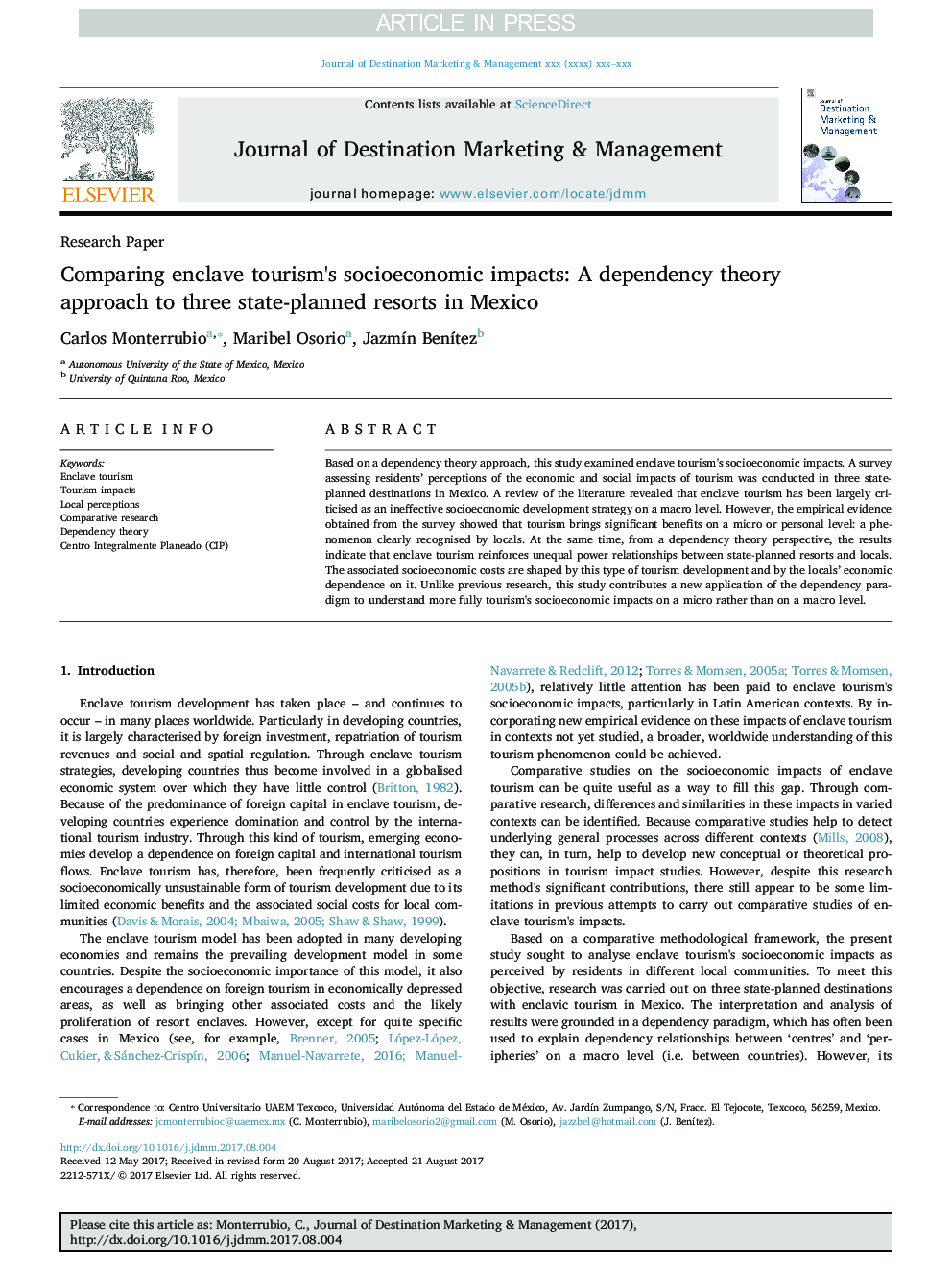| Article ID | Journal | Published Year | Pages | File Type |
|---|---|---|---|---|
| 7419700 | Journal of Destination Marketing & Management | 2018 | 11 Pages |
Abstract
Based on a dependency theory approach, this study examined enclave tourism's socioeconomic impacts. A survey assessing residents' perceptions of the economic and social impacts of tourism was conducted in three state-planned destinations in Mexico. A review of the literature revealed that enclave tourism has been largely criticised as an ineffective socioeconomic development strategy on a macro level. However, the empirical evidence obtained from the survey showed that tourism brings significant benefits on a micro or personal level: a phenomenon clearly recognised by locals. At the same time, from a dependency theory perspective, the results indicate that enclave tourism reinforces unequal power relationships between state-planned resorts and locals. The associated socioeconomic costs are shaped by this type of tourism development and by the locals' economic dependence on it. Unlike previous research, this study contributes a new application of the dependency paradigm to understand more fully tourism's socioeconomic impacts on a micro rather than on a macro level.
Related Topics
Social Sciences and Humanities
Business, Management and Accounting
Business, Management and Accounting (General)
Authors
Carlos Monterrubio, Maribel Osorio, JazmÃn BenÃtez,
